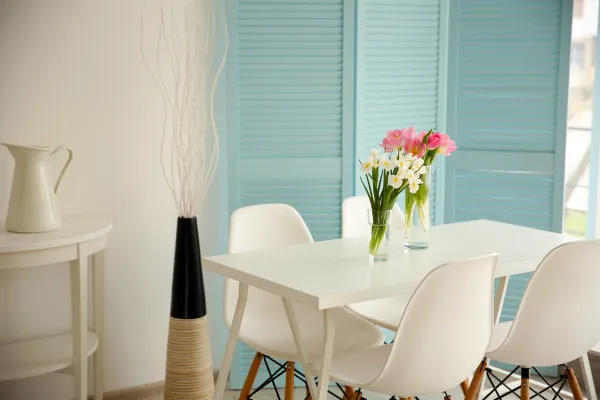
Real Estate Agents Should Stage All Their Listings. Here’s Why.
In the competitive Australian real estate market, first impressions matter. When potential buyers walk into a property, they want to visualise themselves living in it. That’s where home staging comes in. Whether you're working with a luxury property or a modest apartment, staging can be the difference between a listing sitting on the market or receiving multiple offers. Here are 5 reasons why real estate agents should stage all their listings.
1. Staged Homes Sell Faster
One of the most compelling reasons to stage a home is that it can significantly shorten the time a property sits on the market. Staged homes are more appealing, making it easier for potential buyers to imagine themselves living in the space. According to various studies, staged homes can sell up to 73% faster than homes that aren’t staged.
A well-staged home creates an emotional connection with buyers, and the faster a property sells, the better the outcome for both the seller and the agent. In today’s fast-moving real estate market, speed is key. Homes that linger on the market too long often develop a reputation of being undesirable, which can lead to price reductions and a prolonged sales process.
2. Staging Highlights the Home's Best Features
When a home is empty, it can be difficult for potential buyers to appreciate the property's true potential. Staging helps showcase the best features of a home by drawing attention to spacious rooms, architectural details, and natural light. With the right furniture, colours, and decor, home staging makes these elements stand out and show the property in its best light.
For example, staging an open-plan living space with furniture can help buyers visualise how the layout works, while arranging furniture near windows can emphasise views or sunlight. Highlighting key areas like kitchens, bathrooms, and bedrooms with thoughtful staging also helps create a lasting impression.
3. Staging Can Justify a Higher Price
A staged home often looks more polished and inviting, and this can lead to higher offers. Homes that are staged tend to sell for more than unstaged homes because they are perceived as well-maintained and more move-in ready. By creating an appealing atmosphere that resonates with buyers, agents can justify a higher asking price.
Home staging also helps buyers focus on the potential of the property rather than the work that may need to be done. When a home looks clean, modern, and well-organised, buyers are more likely to be willing to pay a premium, as they feel they won't have to make costly upgrades or renovations.
4. It Helps Buyers Visualise the Space
One of the challenges of selling a home is helping buyers imagine themselves in the space. An empty or poorly furnished home can leave potential buyers feeling uncertain about how to use the rooms, which may cause them to lose interest. Staging allows buyers to visualise how each room can function in real life, whether it’s a cosy reading nook, a functional home office, or a welcoming dining area for entertaining.
In particular, staging helps buyers who struggle to see the potential of vacant homes or properties with unusual layouts. It also works to help buyers understand the size of rooms and the overall flow of the space, which can be challenging when viewing empty properties.
5. Staging Differentiates Your Listings from the Competition
In a competitive real estate market, standing out is crucial. Staging sets your listings apart from others, making them more memorable to buyers. With so many homes on the market, a staged property will stand out in online listings, advertisements, and showings. Buyers are more likely to remember a staged home that feels welcoming and well-maintained compared to an empty, poorly presented one.
Additionally, staged homes photograph well, and in today’s digital-first world, professional photos are essential for online listings. Homes that look inviting and well-decorated in photos are more likely to attract potential buyers for in-person viewings, giving you a competitive edge in the marketplace.
Conclusion: A Smart Investment for Every Listing
Staging may require an upfront investment, but for real estate agents, it’s an investment that pays off. By staging all their listings, agents can expect faster sales, higher prices, and more satisfied clients. Staging helps create an emotional connection with buyers, highlights the best features of a property, and makes listings stand out in a crowded market.
In today’s competitive real estate environment, staging is no longer optional – it’s a smart marketing strategy that can transform a listing into a highly sought-after property.
